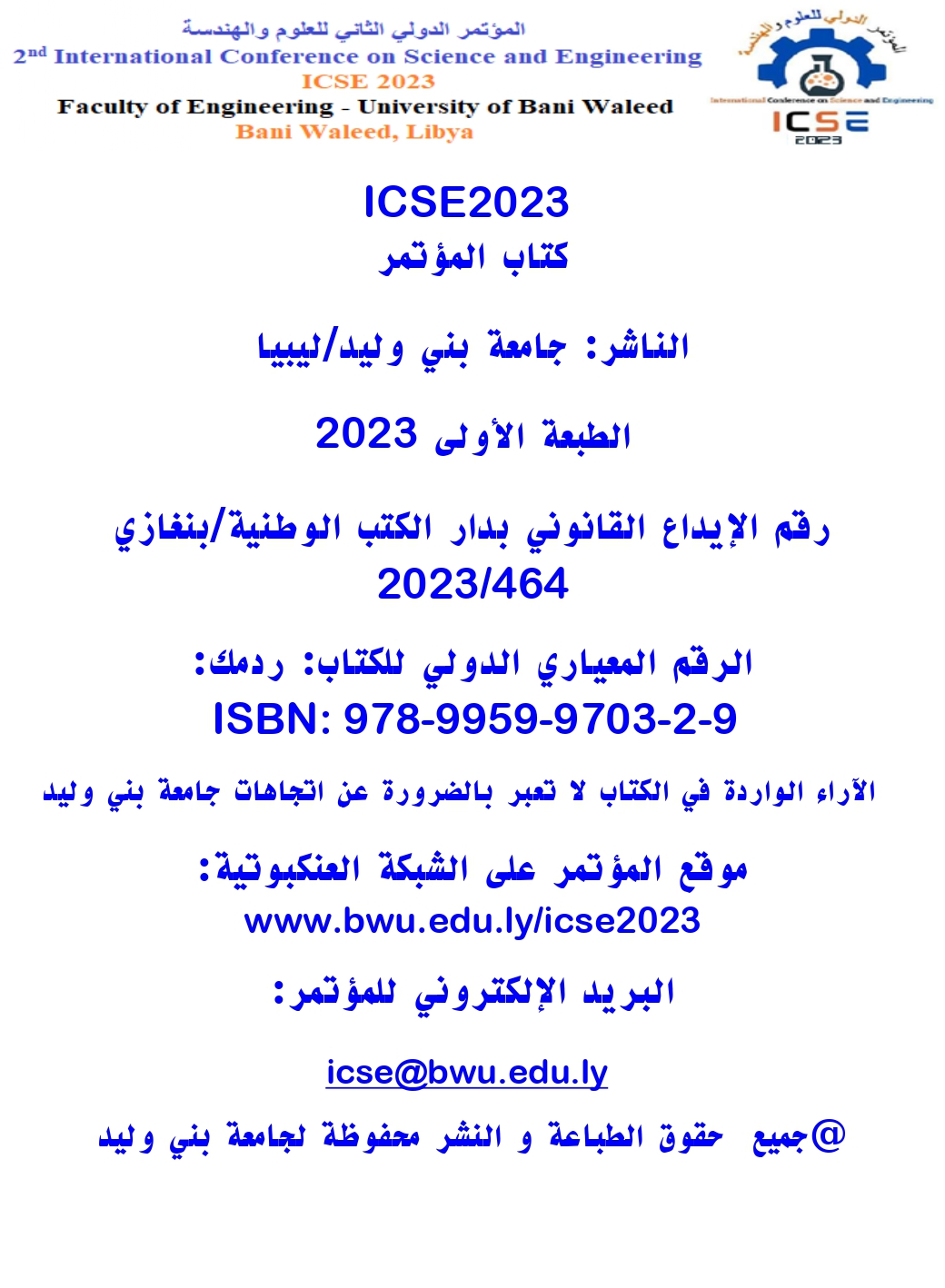Comparison of Ensemble learning algorithms in predicting heart disease
DOI:
https://doi.org/10.58916/jhas.v8i3.188الكلمات المفتاحية:
Bagging, Boosting, Ensemble learning, ROC curve, Stacking.الملخص
Abstract: The main objective of this research is enhancing accuracy of predictive analysis for cardiovascular diseases (CVDs) through the implementation of ensemble learning algorithms. Ensemble learning is a strong approach that combines predictions from multiple models to amelioration overall performance. In this research, we compare the effectiveness of three ensemble learning algorithms: Random Forest, AdaBoost, and Stacking. We evaluate their performance using five criteria: Recall, Precision, F-score, Roc Auc, and Accuracy. The obtained results indicate that the AdaBoost algorithm has achieved the highest performance in the field of diagnosis using the available data. This signifies the high effectiveness of this algorithm in disease prediction and diagnosis. It is also notable that the Stacking algorithm has demonstrated strong performance, particularly in comparison to the Random Forest algorithm. Other performance standards such as Accuracy, Recall, Cohen's kappa, F-measure, Precision, and Specificity also exhibit good performance for the different algorithms. The ROC Curve metric reveals that the AdaBoost algorithm has attained the highest value (97.64), indicating its capability to effectively discriminate between true and false instances.
التنزيلات
المراجع
Kaggle David Lapp, 2019, Heart Disease Dataset, Kaggle, Date Access 29-9-2022, direct Link:
https://www.kaggle.com/datasets/johnsmith88/heart-disease-dataset,
Yiheng Li, Weidong Chen. A Comparative Performance Assessment of Ensemble Learning for Credit Scoring. Mathematics 2020, 8, 1756.
Madhumita Pal, Smita Parija, 2021, Prediction of Heart Diseases using Random Forest, J.Phys.:Conf.Ser.1817 012009.
Asfandyar Khan,. et al, Cardiovascular and Diabetes Diseases Classification Using Ensemble Stacking Classifiers with SVM as a Meta Classifier, Diagnostics, 2022, https://doi.org/10.3390/diagnostics12112595
T. R. Mahesh, et al, AdaBoost Ensemble Methods Using K-Fold Cross Validation for Survivability with the Early Detection of Heart Disease, Computational Intelligence and Neuroscience, Volume 2022.
Md. Maidul Islam, Tanzina Nasrin Tania, Sharmin Akter, and Kazi Hassan Shakib, 2022, An Improved Heart Disease Prediction Using Stacked Ensemble Method, CC BY-NC-ND 4.0.
Yash Khandelwal, 2021, Ensemble Stacking for Machine Learning and Deep Learning, Analytics Vidhya, Date Access 2-9-2022, direct Link: https://www.analyticsvidhya.com/blog/2021/08/ensemble-stacking-for-machine-learning-and-deep-
Alok Kumar, Mayank Jain, (2020), Ensemble Learning for AI Developers Learn Bagging, Stacking, and Boosting Methods with Use Cases, Apress, ISBN-13 (electronic): 978-1-4842-5940-5.
Byeon, H. Exploring Factors for Predicting Anxiety Disorders of the Elderly Living Alone in South Korea Using Interpretable Machine Learning: A Population-Based Study. Int. J. Environ. Res. Public Health 2021, 18, 7625.
Ahmad, M., Kami ́nski, P., Olczak, P., Alam, M., Iqbal, M., Ahmad, F., Sasui, S., Khan, B. Development of Prediction Models for Shear Strength of Rockfill Material Using Machine Learning Techniques. Appl. Sci. 2021, 11, 6167.
S. Raschka. Python Machine Learning. Packt Publishing Ltd, Third Edition, 2019.
Dharmaraj Patil, Jayantrao Patil, 2018, Malicious URLs Detection Using Decision Tree Classifiers and Majority Voting Technique, Cybernetics and Information Technologies 18(1):11-29.
Saini, A. (2021, September 15). Master the AdaBoost Algorithm: Guide to Implementing & Understanding AdaBoost. Analytics Vidhya. Retrieved January 15, 2023, from https://www.analyticsvidhya.com/blog/2021/09/adaboost-algorithm-a-complete-guide-for-beginners/
Ramadan A.M. Elghalid, Ahmed Alwirshiffani, Abdelhafid Ali I. Mohamed, Fatimah Husayn, Amir Aldeeb, Aisha Andiasha. "Comparison of Some Machine Learning Algorithms for Some Machine Learning Algorithms for Predicting Heart Failure", 2022 International Conference on Engineering & MIS (ICEMIS.
Muhammad Sakib Khan Inan, Istiakur Rahman, (2022), Integration of explainable artificial intelligence to identify significant landslide causal factors for extreme gradient boosting based landslide susceptibility mapping with improved feature selection., Machine Learning Applied to Geo-technical Engineering, arXiv, v1.
Nabeela Ashraf1, Waqar Ahmad2, Rehan Ashraf3, A Comparative Study of Data Mining Algorithms for High Detection Rate in Intrusion Detection System, Annals of Emerging Technologies in Computing (AETiC) Vol.2, No.1, 2018.














